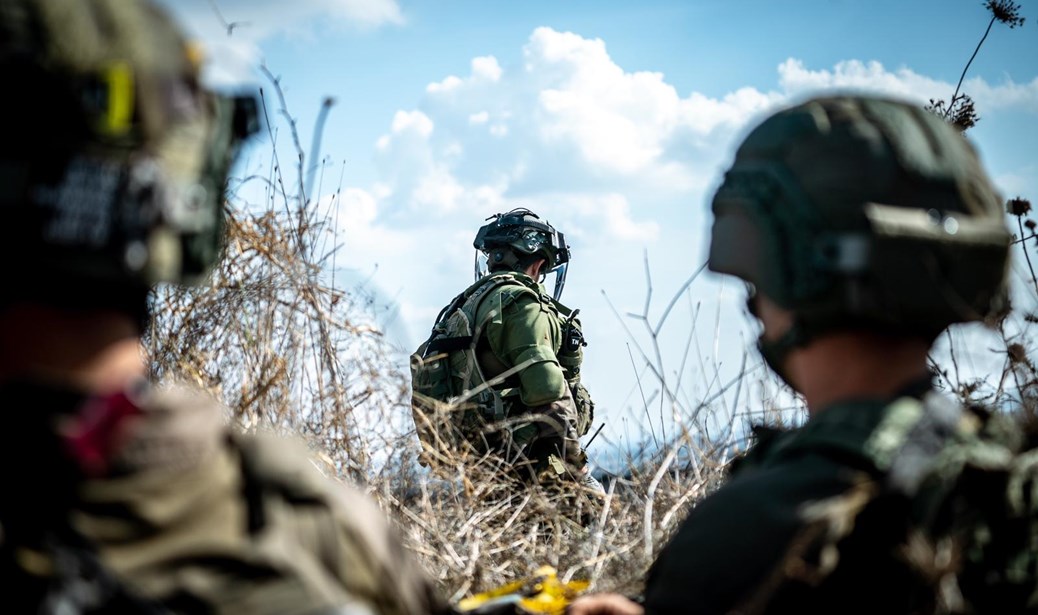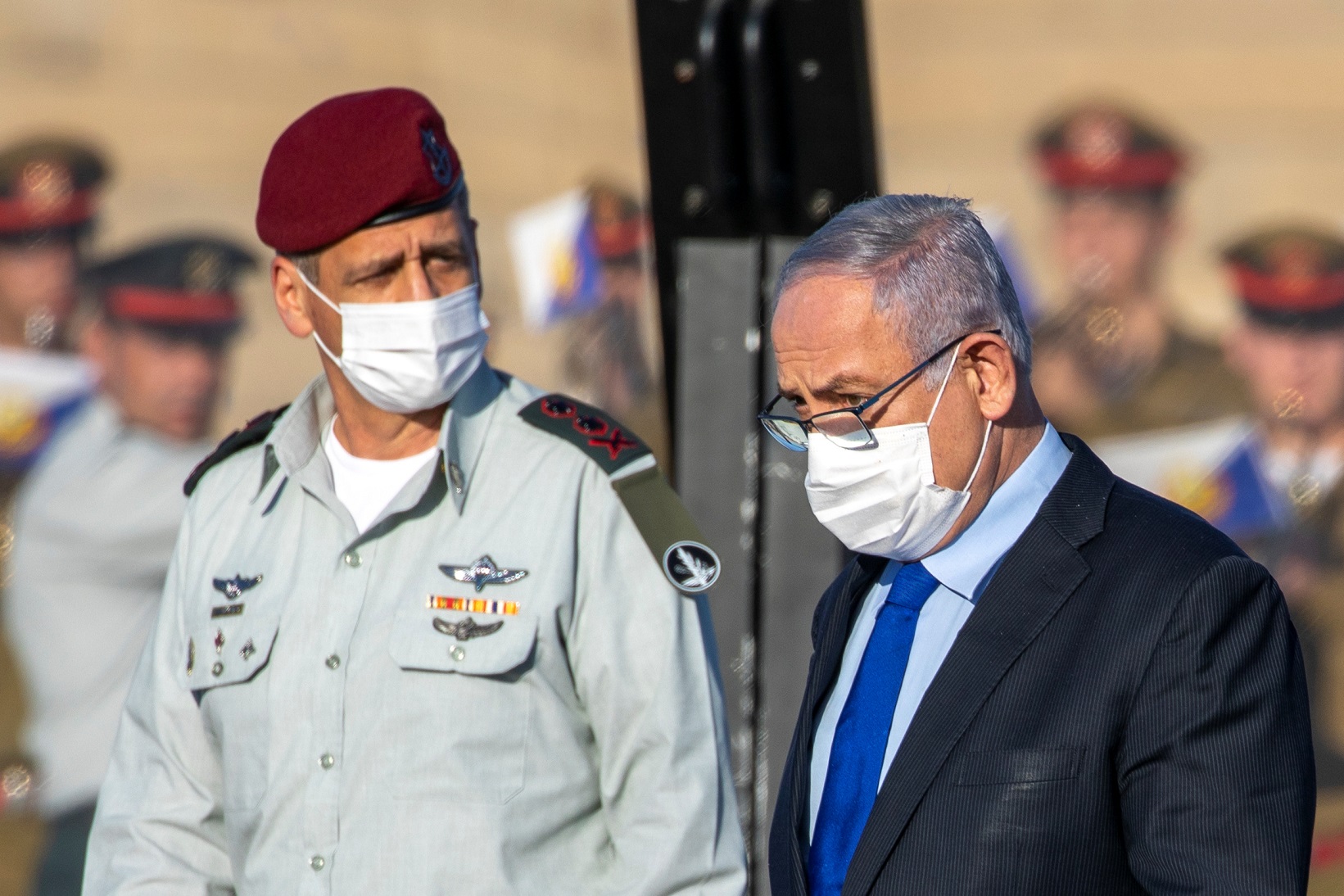Publications
INSS Insight No. 1412, December 7, 2020
The prolonged tension in the north between the IDF and Hezbollah suggests that the two sides are actually only a few faulty or miscalculated moves away from a clash that is liable to escalate rapidly into a full-scale war, with little warning that would give the IDF time to prepare. At the same time, Israel is grappling with a Covid-19 crisis and a prolonged political crisis that has delayed essential IDF force buildup processes, particularly the budget and procurement of aircraft and battle systems, as well as the IDF’s training program. The political crisis has also disrupted the ongoing dialogue between the government and the army, which is a critical element in Israel’s ability to make decisions on both force buildup and, no less importantly, on force application. Despite the pandemic and the political crisis – and as was underscored recently by the IDF’s retaliatory operation in Syria in response to the explosives laid in the Golan Heights – the IDF should train and prepare for escalation, despite the risks of infection from the coronavirus, so that it will be ready for war.
In mid-November 2020, the IDF reported it had launched a large-scale air attack in Syria. As described by the IDF spokesperson, the attack was in retaliation for explosives laid close to Outpost 116 in the Golan Heights under the direction of Unit 840 of the Iranian al-Quds force, which uses Syrian volunteers in terrorist operations. The IDF struck eight targets, including weapons stores, ground-to-air missile batteries, an al-Quds headquarters, and the headquarters of the Syrian 7th division. A number of Syrian and Iranian soldiers were killed in this attack. Since last July, the IDF Northern Command has been on increased alert against Hezbollah, following an attack in Syria attributed to Israel in which a Hezbollah operative was killed.
Following the latter attack, Hezbollah Secretary General Hassan Nasrallah declared that the organization would exact a price in human life for each Hezbollah operative killed in Lebanon or Syria. Hezbollah has tried a number of times to impose this equation on Israel, with no success. For example, in August, Hezbollah snipers fired at an IDF force on the Lebanese border near Manara. The IDF responded from the air, attacking Hezbollah positions near the Lebanese border (in contrast to the response in a previous event, when a squad of Hezbollah snipers crossed the border at Mount Dov, and the IDF allowed the Hezbollah squad to flee). Maj. Gen. Amir Baram, head of the IDF Northern Command and a former paratrooper, said that the Israeli attack was designed to show Hezbollah that "you lost two positions when you fired and caused no casualties. This shows you how we will respond to a shooting attack that causes casualties." A number of additional attacks against bases of Iranian forces in Syria were attributed to Israel – a signal to Nasrallah that his equation has not deterred Israel. The tension, however, has not abated, and Nasrallah has since repeated, and emphasized, that the price will be exacted.
Although the tension continues at a low level, as has occurred in the past on both the southern and northern fronts, the two sides are only a few steps away from escalation that might develop into a war. As with the Israel-Hamas dynamic, it appears that Israel and Hezbollah have adopted the approach that any escalation will be limited to a few days of battle that can be contained and controlled. The potential damage from escalation on the northern front, however, is far greater than the potential damage that Hamas can inflict on Israel. This could make it even more difficult for Israel and Hezbollah to control developments and prevent their escalation into a major conflict.
In addition to the ongoing tension, any assessment of Israel's strategic position should factor in additional variables, among them the forthcoming transition in United States administrations. An American attack on Iranian targets in the region is possible, either in response to attacks against US forces in Iraq and eastern Syria or in order to damage Iran's nuclear project. Such an attack is likely to spark an Iranian response against Israel utilizing Iranian proxies, at a time when Israel continues to weather the Covid-19 pandemic and a political crisis.
Israel is a strong country, with stable and functioning government systems. The political stalemate in the decision making process, however, including in defense matters, has a negative impact on the defense establishment's preparedness for escalation in the security situation. No budget has been drafted or approved in the six months since the current government was formed, including for the defense budget. Procurement of new combat systems and weapons has not yet been decided, and the Tnufa (Momentum) multi-year plan proposed by IDF Chief of Staff Aviv Kochavi has not yet been approved. As stated by Ministry of Defense director general Maj. Gen. (res.) Amir Eshel, adaptation of the processes of training, procurement, receiving, and absorbing new combat systems and aircraft takes time, and some of Israel’s aircraft, for example helicopters, are in operational service far longer than what the manufacturer intended.
Furthermore, as revealed in the course of Prime Minister Benjamin Netanyahu's trip to Saudi Arabia and the political process that led to the signing of the Abraham Accords, senior ministers and the IDF General Staff were excluded and did not take part in the preparations, or in the process itself. A proper, regular, and ongoing dialogue between the government and the army is a vital element in Israel's ability to make critical defense decisions on force buildup, and no less importantly, on the use of force. In the event of escalation on the northern front, the ability of army commanders and senior political leaders to conduct a quick and well-organized dialogue based on trust and knowledge is essential for Israel's ability to manage such escalation successfully.

Given this situation, the insistence of Chief of Staff Kochavi on carrying out essential parts of the Tnufa program, as well as conducting Lethal Arrow, a multi-system exercise, which in late October simulated a conflict on more than one front and included participation by reserve forces, is praiseworthy. In addition to this drill, regular army and reserve forces conducted additional exercises, and more drills are scheduled to take place in the coming months.
Israel's airpower comprises effective and lethal force capable of especially large attack output. The air force has formulated a concept of large-scale high-precision strikes in which each strike is designed to cause destruction and damage to the enemy far in excess of its expectations of the IDF's capabilities and intentions. These strikes are planned to damage enemy systems that are critical to its operational performance and strategic plans. The objective is to bring about multi-system failure, thereby forcing the enemy to devote most of its resources to defense and reconstruction.
At the same time, it is quite possible that in addition to airpower, Israel will have to conduct supplementary rapid and aggressive land operations against enemy soldiers in their territory that will unseat them physically and emotionally, and will also expose targets to attack with precise firepower. According to the IDF, ground maneuvers in recent years revealed two main problems: the ability to provide a response to rocket and missile fire aimed at the Israeli home front, and the ability to neutralize capabilities, rapidly and continuously, in the enemy's centers of gravity. The IDF ground forces have therefore devised a ground combat doctrine of buildup, detection, convergence, strike, and assault, in which the ground combat forces have access to enhanced intelligence and detection capabilities. This will enable them to locate the enemy, attack it, and neutralize its capabilities through precise firepower and rapid and deadly action by land forces.
In any case, the large areas in Lebanon and the densely populated urban areas in the Gaza Strip require large orders of battle, and certainly in a multi-front war. This mandates the use of reserve forces, because the regular army by itself will not be sufficient. In turn, this points to the third deficiency in IDF preparedness – the combat fitness of its forces. Making the IDF fit for combat on land, despite the constraints, requires combat exercises, lest Israel find itself with an inadequate response to the threat. In a talk with Paratroopers Brigade commanders before the exercise in the Galilee, Chief of Staff Kochavi said, "It is impossible to triumph over our enemies without land operations.” He warned against the illusion that the next campaign would be far in the future, and told the commanders that they should "prepare for it as if it will happen tomorrow."
In addition to a high level of readiness, regular maneuvers on a reasonably high level have always been a challenge to the IDF, because the IDF has almost constantly faced concrete threats. Conducting training during the Covid-19 pandemic, however, is an especially difficult challenge, because the possibility of infection during exercises has been added to the usual constraints affecting reserve soldiers, led by their need to balance between employment and family needs on the one hand and service in the IDF reserves on the other. Concern about contagion is well founded, as people have been infected during training.
Nevertheless, as the Chief of Staff said, Israel's enemies will have no regard for its Covid-19 or political constraints. The IDF must therefore arrange a clear procedure as soon as possible that will include appropriate compensation for soldiers who become ill and those who are forced to quarantine as a result of reserve service, and must insist on conducting drills. This arrangement will make it clear to soldiers serving in the reserves that the IDF regards them as a vital asset, and will reinforce their trust in it, while making them realize the importance of training. Conducting combat exercises, combined with IDF-initiated offensive action on the various fronts, strengthens Israel's deterrent image and clearly demonstrates its readiness for war, even though it does not wish for one.
In conclusion, despite the prevailing assumption that the probability of war at the present time is low, especially before the new administration settles into office in the US, it is essential to maintain the IDF's fitness and preparedness for unexpected developments, especially those involving the Iranian-Shiite axis on the northern front, which includes Lebanon, Syria, and western Iraq. The IDF's role is that of a responsible adult – especially at this time, when the political decision making and governmental mechanisms in Israel are underperforming. A high level of preparedness and a high and prominent operational profile will help deter the Shiite axis from efforts to confront Israel with harsh defense challenges having the potential to escalate into a large scale conflict.



